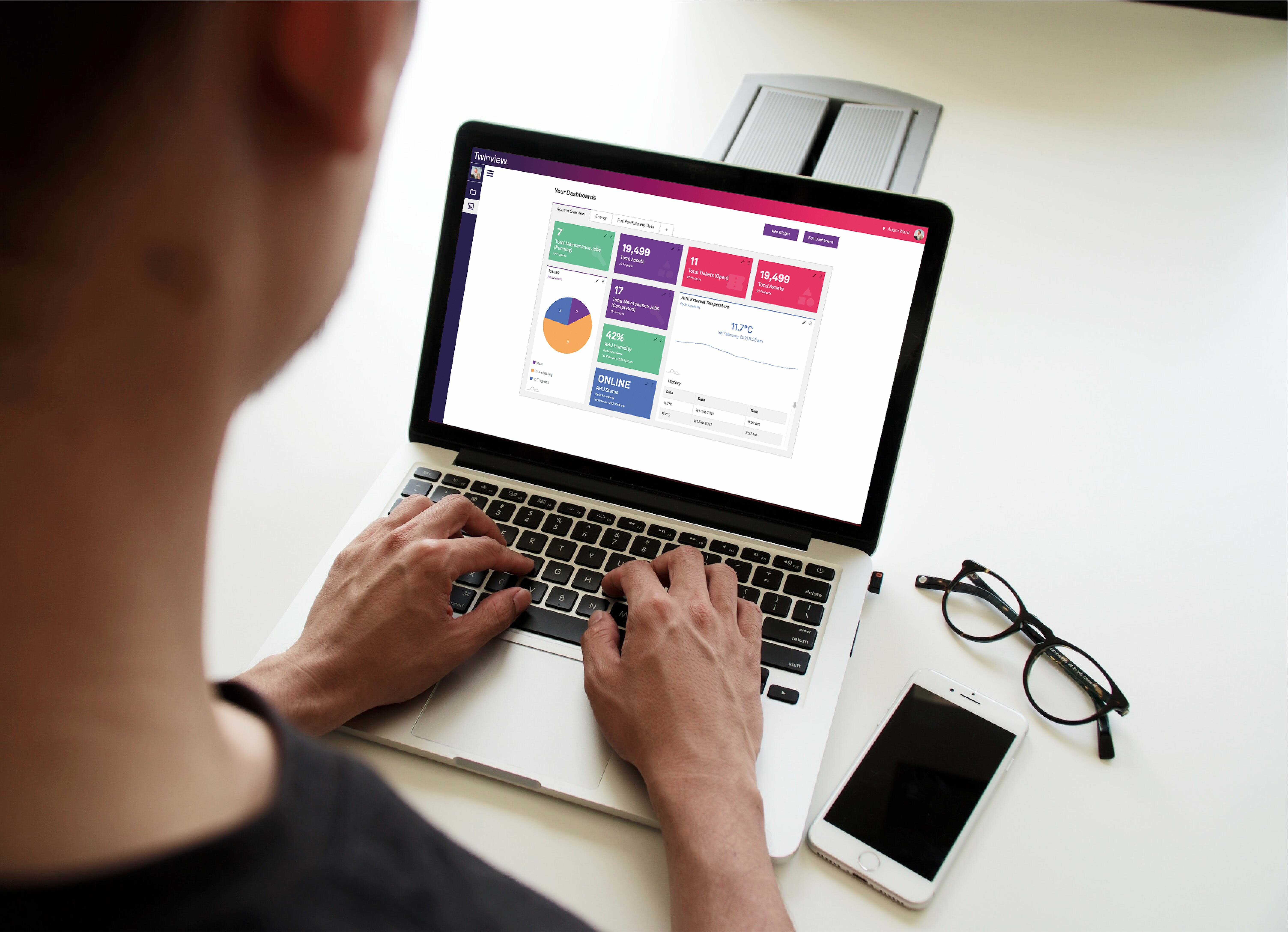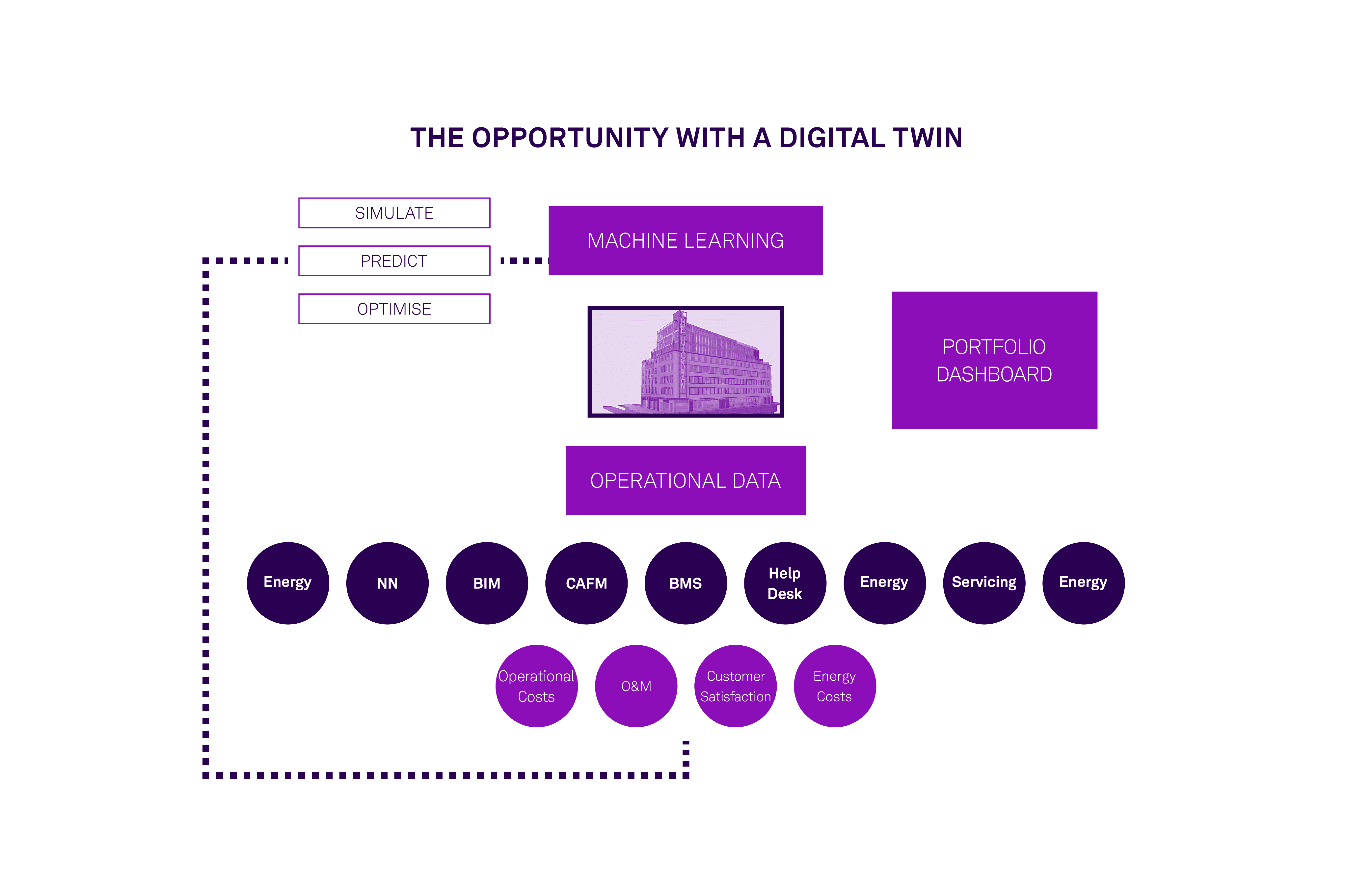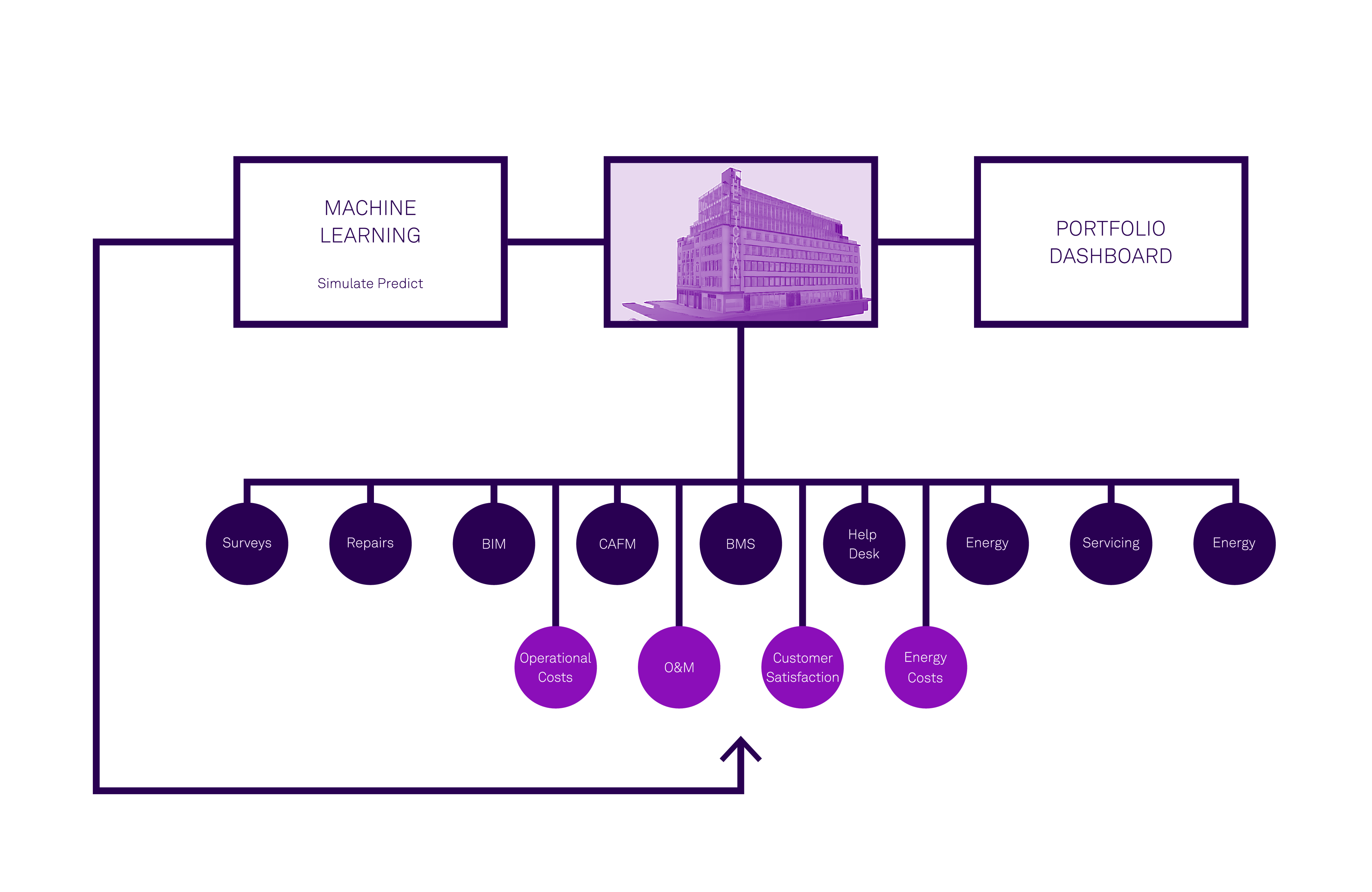19 Feb 2021 | Industry Insights
Emerging Smart Building Terminology

Twinview as a single pane of glass
The Digital Twin is new to the property sector. The connection of systems, information and data are all-new and a number of terms have been adopted that are now relevant to buildings. There is also the emergence of prop-tech platforms such as Twinview.
Twinview brings all of the operational systems in a building together and aggregates them onto a single platform that can be viewed by anyone, for anyone, dependent on permissions.
The platform connects to new and existing systems to allow monitoring and control. With the collection of data, artificial intelligence is used to optimise performance, in turn, reducing costs and carbon.
With the complexity of buildings increasing, Twinview now employs a team of Master Systems Integrators to ensure that the systems align with the client’s day-to-day requirements, allowing them to maximise value from the technology.


Master Systems Integrator
For the last couple of decades, there has been a lot of discussion about smart buildings. Several buildings have often adopted the principals as pilot projects for research, however, today a smart building is an affordable reality. An increase in cloud solutions and Internet of Things devices have made this possible.
In the building management sector, there has been a rapid increase in technology and software which has left a skills vacuum.
Traditionally, buildings have had building management system specialists such as a security specialist and an IT infrastructure specialist. These roles are typically part of the construction contract and often do not interface with the building occupier or their particular requirements.
Technology is moving fast and complexity is only increasing.
Now, all of this information has to be brought together to allow data to be viewed and controlled centrally.
A new role of the Master Systems Integrator (MSI) is emerging on building projects. The MSI’s primary role is to ensure that the client’s voice is heard and that all technologies are integrated and are technically compliant to align with security needs.
The MSI should be appointed at the very beginning of a project, even before any design has commenced. This can help to understand the client’s existing systems and processes as well as understanding the requirements from the new building.
They will write the design and construction specification, ensuring that the installation is in accordance with requirements and is correctly commissioned.
Importantly, the role continues beyond handover and adds value to the client when in operation by analysing the data and optimising performance. With emerging artificial intelligence, there is an opportunity to simulate and predict performance to optimise performance outcomes.
The single pane of glass
A Single Pane of Glass (SPOG) is a term used in the IT network community to describe a management console that presents data from multiple sources in a unified display. Typically, the glass is a computer monitor or a mobile device screen.
The SPOG view is a starting point from which a building manager or operator can get a sense of the overall property performance. It presents operational data that is easier to read and interpret. The phrase ‘Single Pane of Glass’ can also be referred to as a dashboard, one of the latest features on the Twinview platform.
An effective 'Single Pane of Glass' dashboard would include:
- An intuitive graphical user interface that is thoughtfully laid out and easy to navigate.
- A logical structure behind the display that makes accessing current data easy and fast.
- A display that can be customised and categorised to meet specific end-user needs.
Related insights

Industry Insights
Understanding Renters' Rights: How Digital Twins Improve Compliance and Property Management
The recent introduction of the Renters' Rights Bill in the UK aims to improve the relationship between tenants and landlords. As part of a broader effort to ensure fairer and more transparent living conditions, this bill ensures that rental properties meet specific standards, including affordability, maintenance, and habitability. Landlords and property managers now face new challenges in complying with evolving regulations. We explore how Digital Twins could support with these new compliance requirements.
Read more

Industry Insights
UK AI Investment Surge: Opportunities and Challenges for the Property Sector
The UK government's recent surge in AI investment promises to reshape numerous industries, and the property sector is no exception. By committing to driving AI development, the UK is positioning itself as a leader in technological innovation. Property professionals, from developers to facility managers, must understand AI's evolving landscape to capitalise on its opportunities and navigate its challenges. This article explores how the government's increased AI funding can impact the property sector, focusing on AI's potential benefits, obstacles, and real-world applications.
Read more

eBooks
The Value of Property Digital Twins in the NHS: Aligning with Government Policies and AI Requirements
The UK’s National Health Service (NHS), one of the world's largest publicly funded healthcare systems, manages a vast and complex estate, including over 1,200 hospitals, thousands of clinics, GP surgeries, and administrative buildings. Managing such an extensive estate efficiently is essential to delivering high-quality patient care, meeting sustainability targets, and ensuring the financial viability of the healthcare system. With increasing demand, financial constraints, and sustainability commitments such as the Net Zero NHS plan, there is a pressing need to optimise how NHS facilities are managed. One of the most promising innovations in this regard is the adoption of Property Digital Twins (PDTs) virtual replicas of physical assets that provide real-time data on building performance, environmental conditions, and operational efficiency. Learn how by embracing Property Digital Twins, the NHS can transform its approach to estate management, achieving significant cost savings, enhancing patient care, and contributing to national sustainability goals.
Read more

